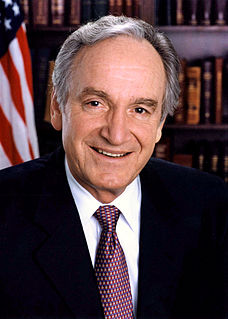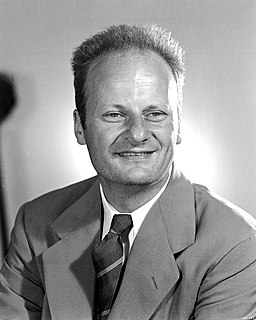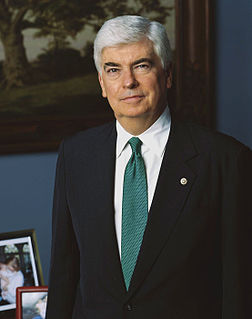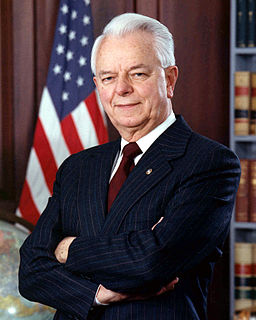A Quote by Tom Harkin
Whereas Iraq has consistently breached its cease-fire agreement between Iraq and the United States, entered into on March 3, 1991, by failing to dismantle its weapons of mass destruction program, and refusing to permit monitoring and verification by United Nations inspections; Whereas Iraq has developed weapons of mass destruction, including chemical and biological capabilities, and has made positive progress toward developing nuclear weapons capabilities
Quote Topics
Agreement
Between
Biological
Capabilities
Cease
Chemical
Consistently
Destruction
Developed
Developing
Dismantle
Entered
Failing
Fire
Including
Iraq
Made
March
Mass
Mass Destruction
Monitoring
Nations
Nuclear
Nuclear Weapons
Permit
Positive
Program
Progress
Refusing
States
Toward
United
United Nations
United States
Verification
Weapons
Weapons Of Mass Destruction
Whereas
Related Quotes
Our President feels, and apparently many in the United Nations Security Council feel, that it is necessary to disarm Iraq before Iraq can again use weapons of mass destruction on her neighbors or she makes some liaison with terrorists who will use these weapons either against Iraq's neighbors or ourselves.
There is no question that Iraq possesses biological and chemical weapons and that he [Saddam Hussein] seeks to acquire additional weapons of mass destruction, including nuclear weapons. That is not in debate. I also agree with President Bush that Saddam Hussein is a threat to peace and must be disarmed, to quote President Bush directly.
It was not the United States who invaded Kuwait; it was Iraq. It was not the United States that went to war with Iran; it was Iraq. It was not the United States that fired chemical weapons at Iran; it was Iraq. And it was not the United States that murdered innocent Iraqi citizens with chemical weapons; it was Iraq.
At another location, we found barrels of chemical material that was intended for use as biochemical weapons. Everyone talks about there being no weapons of mass destruction in Iraq, but they seem to be referring to completed nuclear bombs, not the many deadly chemical weapons or precursors that Saddam had stockpiled.
The last UN weapons inspectors left Iraq in October of 1998. We are confident that Saddam Hussein retains some stockpiles of chemical and biological weapons, and that he has since embarked on a crash course to build up his chemical and biological warfare capabilities. Intelligence reports indicate that he is seeking nuclear weapons.
Change of regime with respect to Iraq had nothing to do with this; it had everything to do with the fact that Iraq had weapons of mass destruction. And at the time change in regime as a policy came into effect in 1998, it was seen as the only way to compel Iraq to get rid of its weapons of mass destruction.
Iraq does pose a serious threat to the stability of the Persian Gulf and we should organize an international coalition to eliminate his access to weapons of mass destruction. Iraq's search for weapons of mass destruction has proven impossible to completely deter and we should assume that it will continue for as long as Saddam is in power.
The United States was the one nullifying any attempt in the Security Council of the United Nations to sanction those fascist governments, really segregationist and racist. The same thing it is doing for Israel is what it used to do for South Africa who ended up having seven nuclear weapons. Why didn't they act against them like they did against Iraq for the so called weapons of mass destruction during Bush that never existed in the first place?
America has shown we are serious about removing the threat of weapons of mass destruction... We now know that Saddam Hussein had the capacity to produce weapons of mass destruction.... We know he had the necessary infrastructure because we found the labs and the dual-use facilities that could be used for these chemical and biological agents. We know that he was developing the delivery systems - ballistic missiles - that had been prohibited by the United Nations.
I think the danger right now is that without effective inspections, without effective monitoring, Iraq can in a very short period of time measured in months, reconstitute chemical and biological weapons, long-range ballistic missiles to deliver these weapons, and even certain aspects of their nuclear weaponization program.
































